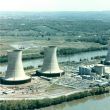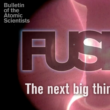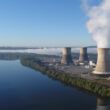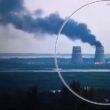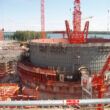We need a workable policy on nuclear waste and nonproliferation
By Jill Marie Parillo, November 7, 2008
I disagree with Stephen Goldberg and Alan Hanson–just being at the table won’t ensure our influence over new nuclear states. The Global Nuclear Energy Partnership (GNEP) puts U.S. international nonproliferation and nuclear safety objectives at risk.
Energy Department budget documents and official statements from 2006, when GNEP was first launched, described a nonproliferation policy for the partnership. But it never made it through international negotiations. That early policy required partner nations receiving fuel services to “forgo their own investments in enrichment and reprocessing technologies,” while requiring supplier nations to develop proliferation-resistant reprocessing techniques that didn’t separate out pure plutonium. When states showed little interest in the initiative given these criteria, Energy changed the rules. At the September 2007 GNEP meeting in Vienna, Energy Secretary Samuel Bodman assured potential partners that in joining GNEP, “nobody is giving up their rights–nobody is giving up anything.”
It will be hard to convince nations to follow our lead in instituting nonproliferation policies when we haven’t formulated any such policies for GNEP’s domestic component. A recent 970-page Programmatic Environmental Impact Statement (PEIS) on GNEP released by Energy last month is a good example. (A further report by the National Nuclear Security Administration–spurred by the 14,000 public comments received on the PEIS–that will specifically deal with proliferation concerns is expected in December.)
In the PEIS, Energy assessed a scenario where GNEP remains unimplemented and the United States generates electricity and spent fuel with light water reactors as we do now. It also assessed a “fast reactor recycle alternative,” where reprocessing and fast reactor facilities are built as called for by GNEP.
In the future GNEP scenario, Energy assumes that futuristic nuclear technologies will start working in five years, the government will subsidize the extreme costs, and that nuclear waste problems will virtually go away since uranium (96 percent of spent fuel) will be burned in the fast reactors. It’s hard to imagine how such a scenario will be implemented. The costs for fast reactors and reprocessing centers are prohibitive (more than $100 billion), major technical hurdles remain, and Congress has shown no interest in funding such facilities.
The PEIS further states that cesium and strontium, which are currently embedded within spent fuel rods, would be separated out through reprocessing and “could be stored at the recycling center for 300 years” or transported to a future high-level storage facility. After 30 years of operation, an estimated 7.5 billion to 12.4 billion curies of highly radioactive cesium and strontium could accumulate at such a GNEP facility. This would dwarf the 131 million curies of cesium and strontium currently stored at the Hanford Site in Washington state that the National Academy of Sciences calls “the nation’s most lethal single source of radiation other than inside an operating reactor.”
I do not, as Miles Pomper’s asserts, believe that the United States should wait to find a technological fix to a political problem. The truth is we don’t have a sustainable waste solution that politics is holding up. Instead, we must overcome political hurdles as quickly as possible to start funding groundbreaking research at our national labs to discover a true and workable solution to U.S. nuclear waste problems–and before we create more waste here and abroad.
President-elect Barack Obama points us in the right direction by suggesting we find longer-term interim storage for our spent fuel, which will buy us time to find more permanent waste solutions. We can find a solution if the new president and a new Congress overcome the political divisions that have kept the country from progressing on this issue. Obama pledged during his campaign that he would work to overcome such divides, let us hope he can.
Topics: Nuclear Energy
Share: [addthis tool="addthis_inline_share_toolbox"]

